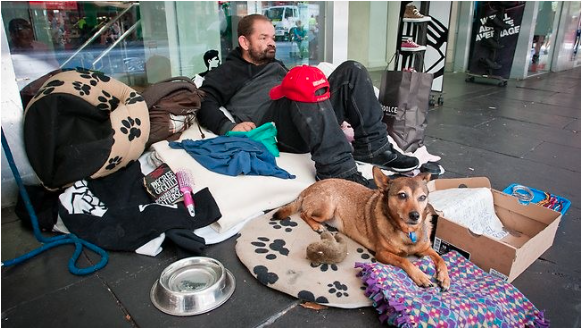Providing housing for homeless is cheaper and better for society

It is cheaper to provide last resort housing to homeless people than to leave them sleeping rough, a new report from the University of Melbourne has found.
Each bed provided by the government provides an average net benefit of $10 800 per year, according to the comprehensive cost-benefit analysis, commissioned by the University of Melbourne’s Sustainable Society Institute (MSSI).
The University partnered with consulting firm SGS Economics and Planning, which undertook the analysis.
“We found that governments and society benefit more than they spend by providing last resort housing to homeless individuals,” said SGS Director Ellen Witte, the report’s lead author.
“This is mainly through reduced healthcare costs, reduced crime, and people getting back into employment or education.
“There is much to gain in economic and social terms, both for government and society, by assisting the homeless.
“The supply of last resort housing has actually dropped in inner Melbourne while demand continues to peak. Demand is primarily driven by housing unaffordability, people escaping domestic violence and a structural lack of social housing.”
MSSI Director Brendan Gleeson, an expert adviser to the report, said: “Homelessness is getting worse in Melbourne – but the good news is that governments come out ahead if they provide last resort housing for those sleeping rough.
“It’s time for governments to step up, provide new housing for the homeless, and make sure that existing emergency housing stays open to those in desperate need.”
The report, The Case for Investing in Last Resort Housing, is issued by MSSI in March 2017. Key findings include:
- The number of people sleeping rough in Melbourne’s streets has increased by over 70 per cent in the last two years.
- There has been a reduction in the supply of “last resort housing”. Last resort housing refers to legal rooming and boarding houses, and emergency accommodation.
- On average, more than 40 requests for last resort housing are turned down across Victoria every day.
- The analysis shows that the government providing one last resort bed will generate a net benefit of $216 000 over 20 years. That averages to a net benefit of $10 800 per year.
- For every $1 invested in last resort beds, $2.70 worth of benefits are generated for the community (over 20 years).
- The paper calls for governments to build more new, permanent last resort housing to help the homeless.